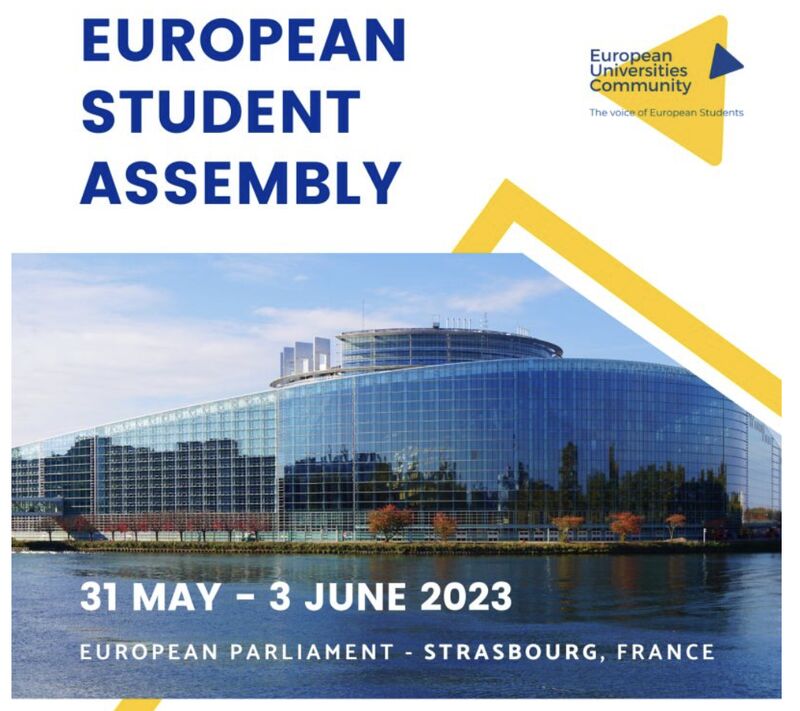From 31 May to 3 June 2023, the second European Student Assembly (ESA23) is taking place in the European Parliament in Strasbourg. An initiative led by the Alps university of Grenoble and the University of Strasbourg in partnership with CY Cergy Paris University. Following the first edition, 89 policy recommendations emanated from this assembly and were transmitted to European decision-makers.
The #ESA23 Assembly is an innovative educational initiative coming from students and academic and administrative staff of several alliances of European universities* to debate the future of Europe and contribute to its democratic renewal through citizen deliberations by and for students.
This year, 230 students from 30 European countries, selected from 1,400 applications, will prepare recommendations on 10 themes concerning the EU’s strategic autonomy. The aim is to return these recommendations to European decision-makers at the closing of the event before broadcasting these through different channels. Located in the parliamentary capital of the EU and naturally having a European vocation, Unistra is one of the universities organizing the event. CY Cergy Paris University contributes by sending student journalists who will cover the 3 days.
Among the 89 policy recommendations adopted by the first European Student Assembly are:
- Create a platform for company CSR reports with a ranking
- Establish EUCPRA, the European Union’s communication and public relations agency
- Promote agricultural internship programs
Some recommendations made by students in March 2022 have since been completed such as:
- The implementation of the Directive on Temporary Protection of Displaced Persons from Ukraine. It was carried out by students in the panel dedicated to climate refugees
- Immediate recognition of Ukraine, Georgia and Moldova as candidate states for EU membership
This year, the selected students will focus on the following 10 themes to make recommendations for EU strategic autonomy:
Panel 1: Deliberative versus representative democracy? How to reduce the gap between citizens and policy-makers and create a more united Europe?
Panel 2: Lessons from the past? How could the French-German history of reconciliation serve as a model to overcome conflicts and build unity?
Panel 3: How to secure fair and sustainable access to energy in Europe at different levels?
Panel 4: From farm to fork. How can local food distribution channels contribute to a fairer and more sustainable European food system?
Panel 5: Taking better care of each other. What should be the European approach to mental health?
Panel 6: How to ensure a fair and sustainable digital transition in a context of exploding demand and raw material scarcity?
Panel 7: Is the EU in a position to develop an efficient foreign policy and an autonomous defence policy that would ensure the safety of its citizens?
Panel 8: Cities of the future. How could sustainable cities contribute to European autonomy and people welfare?
Panel 9: Excellence versus inclusion? How can European universities contribute to provide a more inclusive access to skills and knowledge?
Panel 10: European Year of Skills – What role can higher education institutions play in reducing the skills gap in Europe?









